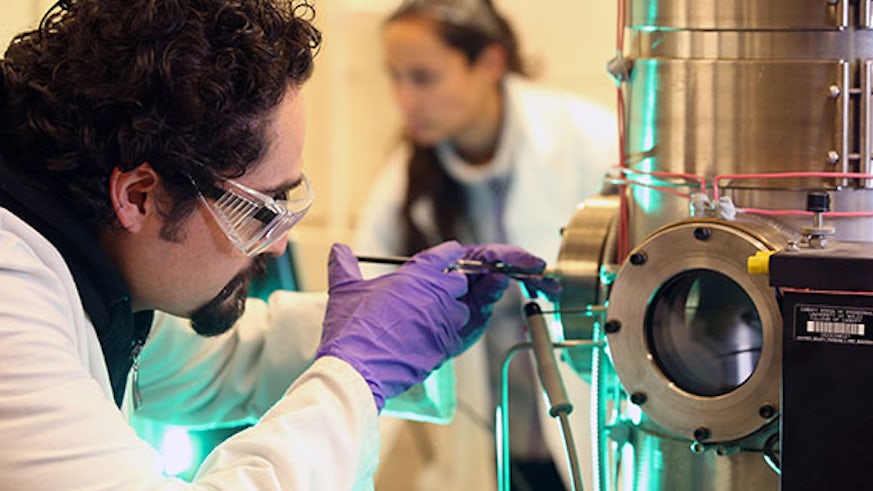New discovery changes the future for hydrogen-fuelled cars
21 October 2016

A team of researchers from Cardiff University School of Engineering, Oxford University and the University of Cambridge, along with collaborators at the King Abdulaziz City for Science and Technology (KACST), have made a discovery which may change the future for hydrogen-fuelled cars.
The research team have found that hydrocarbon wax, when activated with catalysts and microwaves, rapidly releases large amounts of hydrogen. Hydrogen-powered cars have been seen as a potential solution to the provision of clean sustainable transport. One of the major challenges facing the development of hydrogen-powered fuel cell vehicles has been the lack of a safe, lightweight hydrogen storage material that can be carried on board. This major new discovery may be the solution to this problem.
The international team of researchers have found that hydrogen can be easily and instantly extracted from wax, a benign material which can be manufactured sustainably and will not catch fire or contaminate the environment. This makes it safe for drivers and passengers as well as other road users.
Dr Daniel Slocombe, from Cardiff University, who was one of the research team, and a co-author on the recently published paper, said: “We have developed highly selective catalysts with the assistance of microwave irradiation, which can extract hydrogen from hydrocarbons instantly through a non-oxidative dehydrogenation process. We are hoping that this can pave the way for the adoption of hydrogen fuel technology making it safe for applications such as hydrogen-fuelled cars."
One of the co-authors, Professor Peter Edwards, who leads the KACST-Oxford Petrochemical Research Centre (KOPRC), a KACST Centre of Excellence in Petrochemicals at Oxford University, said: 'This discovery of a safe, efficient hydrogen storage and production material can open the door to the large-scale application of fuel cells in vehicles.'
Professor Edwards added: 'Instead of burning fossil fuels, leading to CO2, we use them to generate hydrogen which, with fuel cells, produces electric power and pure water. This is the future – transportation without CO2 and hot air.'
The paper, Wax: A benign hydrogen-storage material that rapidly releases H2-rich gases through microwave-assisted catalytic decomposition, which details the research behind the discovery has been published in the journal Nature: Scientific Reports and is available on open access. http://www.nature.com/articles/srep35315